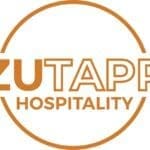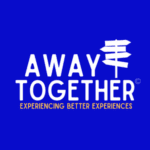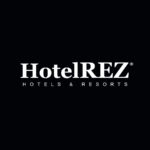 Recently I was assigned to perform quality audits “mystery shopping” for a hotel company. What struck me was how within one company, standards could be exactly similar, yet at the same time very different. If the similarities were mainly in the look and feel of the experience, the differences mainly came from how the staff performed at actually delivering that experience.
Recently I was assigned to perform quality audits “mystery shopping” for a hotel company. What struck me was how within one company, standards could be exactly similar, yet at the same time very different. If the similarities were mainly in the look and feel of the experience, the differences mainly came from how the staff performed at actually delivering that experience.
The need for training in hospitality
Research show numerous advantages to invest in training for hospitality businesses:
- Return on investment,
- Employee satisfaction and
- Improved employee performance, with a higher customer satisfaction.
Hospitality training ROI: a no brainer
The return on investment (ROI) from training and development of employees is really a no brainer as many studies shows. If various ways exist to calculate this ROI depending on one’s Key Performance Indicators, one thing remains true across different types of properties: although hospitality businesses tend to forgo proper staff training due to associated costs, training actually accounts for a revenue generator.
One example out in the hotel industry is measuring the ROI by measuring stick words used by a reservation agent during a room reservation by phone. It has been studied that the use of stick works such as a proper professional greeting, gathering contact information right away, using the guest’s name throughout the conversation, increases the likelihood of booking by 2.5 times!
Training and employee satisfaction
On average, the Fortune 100 ‘Best Companies’ to Work For’ provide twice as much trainings for full-time employees, compared to standard practices. These top organizations have 65 percent less staff turnover than other organizations in the same sector, partly due to their employee development programs. According to research, 46 percent of employees say their company’s training courses make them more likely to stay. Employees show increased satisfaction levels, feel appreciated, have better internal relationships, feel challenged and are more efficient in executing the job.
Knowing that the turnover rate in hospitality industry is extremely high, 70-75 % annually in US (according to the US Bureau of Labour statistics), investing in staff trainings seems to be a logic choice. In addition, training and career development are among the top factors millennials use to rank the attractiveness of a job or company as a place to work.
Employee development and staff performance
Clients truly sense whenever a hotel’s staff is trained. On average, quality of service level for experienced or trained staff are significantly better. Trained staff are not only focusing on the task but can consider giving the little extra to please the client and make clients loyal.
For example, within a hotel reservation process, while the talk time is a bit longer, the satisfaction rate from customer surveys indicates a very high satisfaction level. EHL has participated in a measuring exercise with a big hotel group and we managed to demonstrate that well trained staff increased revenues by more than 5% and guest satisfaction by 5 to 7%.
About the author
 Jochen de Peuter – Consultant at EHL Advisory Services, Lausanne Office. Jochen puts the customer at the center of his approach. With efficient use of resources and well-determined activities, Jochen commits to creating significant added value for the customer and therefore a positive return on investment for the business. He is convinced that digital transformation, constant innovation, employee education and customer focus are fundamentals for a successful business.
Jochen de Peuter – Consultant at EHL Advisory Services, Lausanne Office. Jochen puts the customer at the center of his approach. With efficient use of resources and well-determined activities, Jochen commits to creating significant added value for the customer and therefore a positive return on investment for the business. He is convinced that digital transformation, constant innovation, employee education and customer focus are fundamentals for a successful business.
Prior to joining EHL Advisory, Jochen worked in the online hotel distribution and hotel technology industry. He has proven outstanding results in customer acquisition, business development in new markets and relationship management across various markets in Europe. Jochen operated in demanding and fast evolving work environments. This setting helped him to collaborate and think with the team so as to stay ahead of competition.
Jochen holds an academical degree in economics and business administration, a post graduate degree in hospitality operations and an Executive MBA from IESE business school. He is a native Dutch speaker, business fluent in English, German, French and can communicate in Russian.
Areas of Focus: Customer service design, Online hotel distribution, Digital transformation, Business development, Digital marketing, Business analysis of SME and start-ups.



















